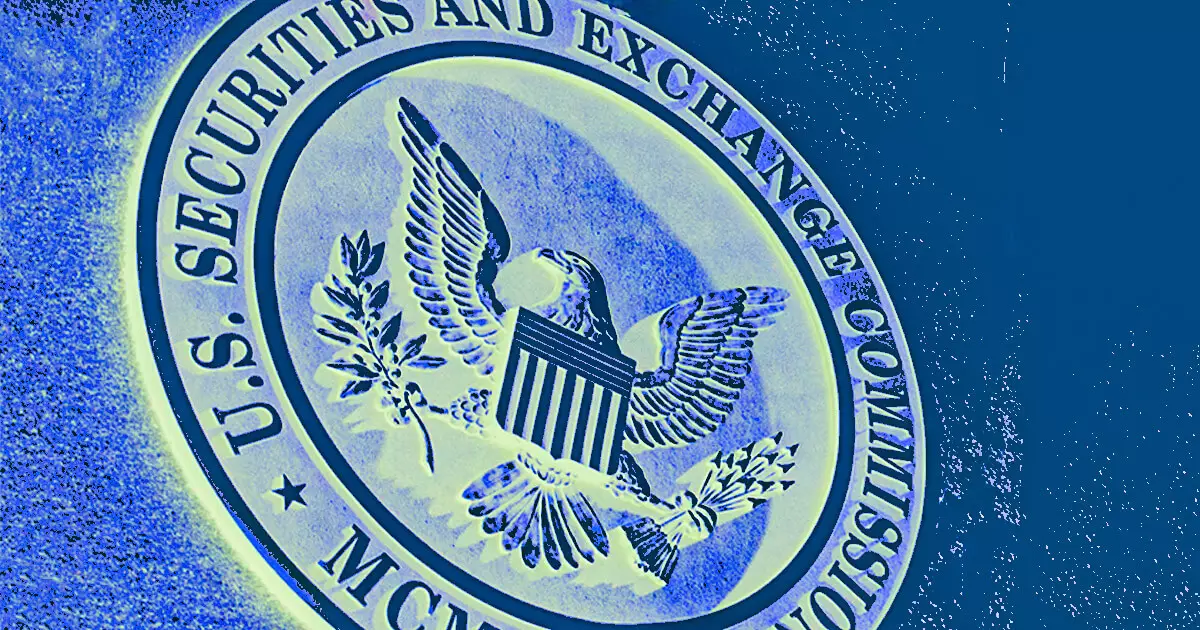The ongoing saga of cryptocurrency regulation in the United States continues to spark intense debate, particularly within the corridors of the Securities and Exchange Commission (SEC). Recently, SEC Commissioner Mark Uyeda openly criticized the agency’s regulatory approach, describing it as a “disaster for the whole industry.” During his recent appearance on Fox Business’ “Mornings with Maria,” Uyeda’s comments represented a rare internal dissent, as he highlighted the agency’s preference for enforcement over clear regulatory guidance. This stance, he argued, has cultivated an environment of uncertainty for crypto firms navigating a landscape filled with opaque rules and shifting obligations.
Uyeda’s remarks come on the heels of notable legal confrontations, exemplified by the lawsuit filed by Crypto.com. This legal action accuses the SEC of exceeding its jurisdictional reach by broadly categorizing most cryptocurrencies as securities. Uyeda’s acknowledgment of the lawsuit reflects a growing frustration among industry players about the lack of clear interpretive guidance from the SEC regarding digital assets. According to Uyeda, investors and firms alike are disheartened by the absence of straightforward directives essential for compliance with existing securities laws.
The Inefficacy of Enforcement-Driven Policy
A major point of contention raised by Uyeda involves the SEC’s reliance on “policy through enforcement.” This approach has not only led to a barrage of lawsuits but has also resulted in inconsistent legal rulings as courts are left to sift through vague interpretations of law. The commissioner pointed out that without definitive guidance on what constitutes permissible activity in the digital asset space, the SEC has inadvertently initiated an environment rife with confusion and frustration. Uyeda’s concern reflects a critical misalignment in regulatory philosophy, as the agency operates in a reactive rather than proactive mode, only responding to challenges brought forth in courts rather than providing a framework for future compliance.
The continuing legal battle between the SEC and major players like Ripple Labs underscores the urgent need for a comprehensive regulatory framework. Ripple’s recent developments illustrate the burdens that companies face when compliance obligations remain ill-defined; their ongoing litigation with the SEC has taken numerous twists, with the agency recently seeking to overturn a court ruling that ruled XRP sales to retail investors did not breach securities laws.
Implications for the Crypto Industry
As various crypto firms strive to establish their footing amid a constantly shifting regulatory climate, Uyeda’s insights elucidate the rising demand for transparent and consistent regulations. His remarks signal a crucial call to action for the SEC to shift its focus from punitive measures to regulatory clarity that can empower rather than hinder innovation. With ongoing scrutiny from lawmakers and increasing concerns voiced by industry stakeholders about SEC Chair Gary Gensler’s aggressive stances, including the classification of specific crypto-related activities as securities, it becomes increasingly paramount that definitional clarity is addressed.
The crypto industry, known for its rapid evolution and transformative potential, faces daunting obstacles that stem from an unclear regulatory environment. As more firms turn to litigation as a means of seeking clarity, it becomes clear that no effective solutions can be realized without an explicit definition of what constitutes securities under existing laws. Thus, as the crypto landscape continues to evolve, establishing regulatory frameworks that delineate clear guidelines could serve to foster growth, protect investors, and encourage innovation in this exciting frontier of finance.



Leave a Reply